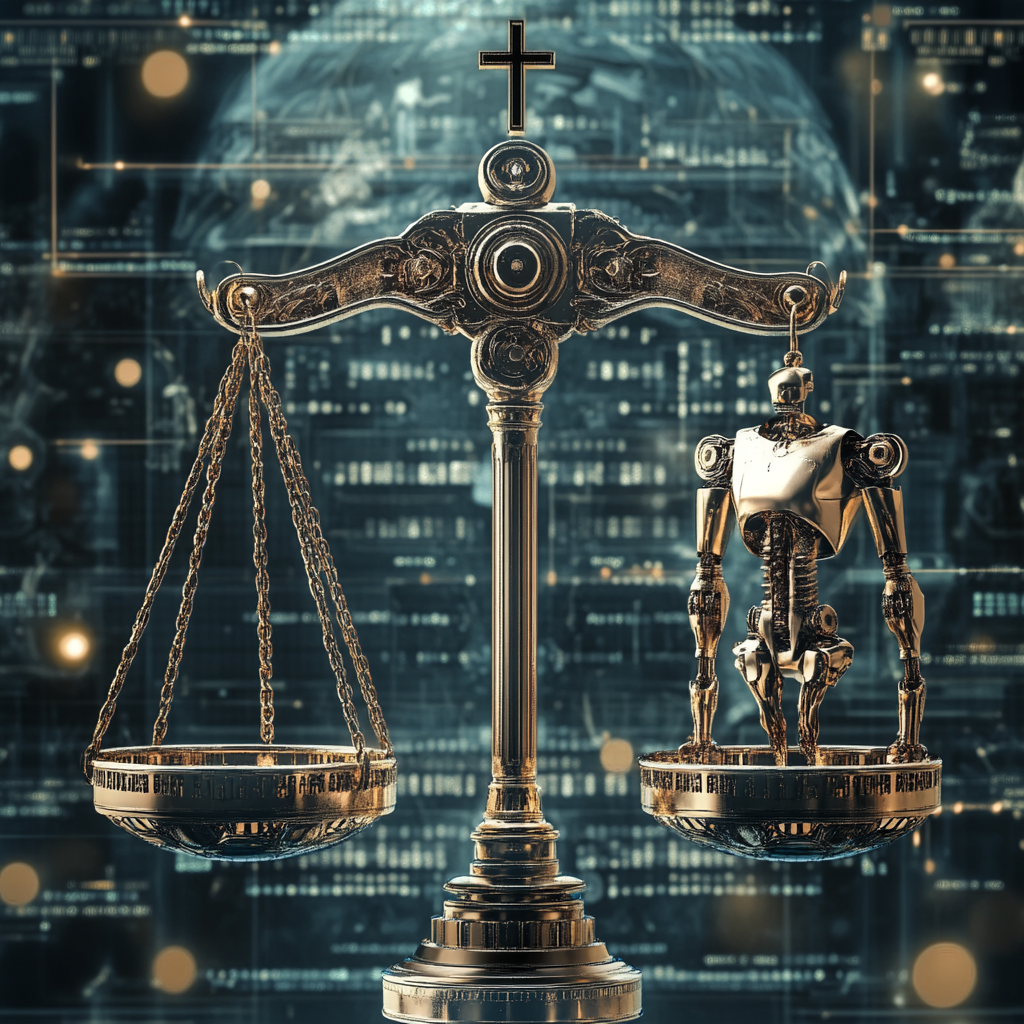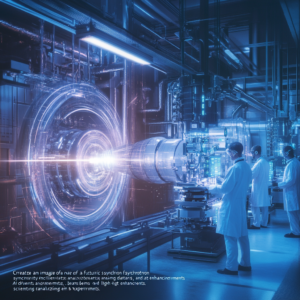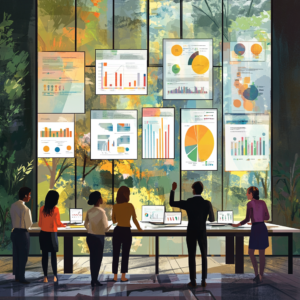
“Vatican Issues Guiding Principles on AI, Emphasizing Human Dignity and Combatting Misinformation”
In a world swirling with frenetic advances in technology, the Vatican has taken a daring step into the choppy waters of artificial intelligence (AI), boldly claiming its stance in an era that some might argue offers more existential risks than benefits. Their newly unveiled document, "Antiqua et Nova: Note on the Relationship Between Artificial Intelligence and Human Intelligence," is not merely a half-hearted attempt at keeping up with the times nor a tedious recitation of do's and don'ts. This is a clarion call issued under the auspices of Pope Francis, delivered by the Dicastery for the Doctrine of the Faith and the Dicastery for Culture and Education. It bravely wades into the ethical, anthropological, and social implications of AI, seeking to steer policy-makers, scientists, and the average Joe towards a responsible relationship with this ever-looming technology.
Now, let’s not sugarcoat the drink. The Vatican's core message is about as clear as a crystal chalice: AI is a tool forged by human intelligence, not a usurpation of our cognitive crown. We’re not on the brink of welcoming our robot overlords; we’re creating machines that serve us. At its heart, true intelligence transcends cold calculations— it embodies rationality, moral conscience, love, and a realistic awareness of our interconnected plight. To paraphrase a sentiment from the Vatican’s scroll of wisdom:
“AI possesses exceptional abilities to undertake a myriad of tasks, but it lacks the faculties to think, to love, or to make moral choices in the capacity of a human being.”
That’s a statement dripping with poignant truth, isn’t it? As we navigate through the wonders of AI, the Vatican shines a light on ethical risks that could tip society into chaos if left unbridled. Misinformation, that shapeshifting specter haunting below the surface of our digital lives, is one of the key risks flagged in their document. The advent of AI-generated "deepfakes” not only blurs the lines between fact and fiction, but also stirs the cauldron of social trust, compelling us to reconsider the value of truth in a world inundated with deceptive narratives.
Moreover, the warning bells are ringing when it comes to the future of labor. While many greet AI with anticipation for enhanced productivity and reduced costs, the Vatican posits an equally grim counter-narrative: AI’s cold hands could lead to human unemployment and burgeoning economic inequality. Let’s be real—if our robots are happily taking jobs, what happens to those left adrift in the workforce? These ethical dilemmas are not trifles; they are real, challenging queries that demand our attention.
Don’t even get me started on surveillance! The Vatican’s skittishness about AI's potential for mass surveillance raises chills. Privacy? Uh-oh, the concept could easily dissolve amid the relentless march of technology. The document cautions against using AI in ways that encroach upon human rights and freedom of expression. Big Brother could easily evolve into a terrifying AI arm, ensuring that every action is monitored and analyzed. Simply put, that’s a slippery slope we can't afford to slide down into—a realm where freedom becomes a casualty of our technological aspirations.
When it comes to the bleak domain of warfare, the Vatican wields an unyielding stance: AI should not be entrusted with the grimmest of human decisions—the choice to take a life. Filing that under “unacceptable,” they reinforce the belief that no machine, no matter how “intelligent,” should hold such sovereign power. A sober reminder that, in many ways, progress does not come without a price.
Now, let’s pause to reflect on the Vatican’s portrayal of AI in light of a Christian vision. The document boldly asserts that human intelligence is a divine gift, meant to serve a higher moral purpose. To surrender to a "technocratic paradigm"—that suggests technology is the singular answer to our human plight—is to disregard the complex tapestry of existence that calls for not just intelligence, but wisdom steeped in moral and spiritual insight. We mustn’t overlook the depth of human experience in our blind rush towards automation.
As we ponder our technological trajectory, the Vatican issues a heartfelt plea for several key actions to steer AI toward a brighter, more harmonious future:
-
Create an International Ethical Framework: The call for a global ethical framework is loud and clear. Regulations need to align AI’s developments with the innate dignity of every human being and the common good, because let’s face it—self-serving algorithms might be the quickest route to moral bankruptcy.
-
Instill Human Accountability: The proverbial buck must stop with humanity, folks. Rather than spilling blame on the algorithms, we must ensure that human accountability is a fundament of AI-driven decisions, which means being vigilant every step of the way.
-
Champion Responsible Use: Every stakeholder, from developers to governments, must commit to ensuring AI promotes human dignity. No shortcuts! The great promise of humanity lies in capabilities that uplift and empower us all.
As we journey onward into this AI-infused era, it’s no exaggeration when I say that the Vatican’s document on AI and human intelligence represents a clarion call for an ethical compass in a swirling sea of uncertainty. With the power to shape our shared future, we must heed their summons to cultivate responsible development and applications of AI technology. Otherwise, we risk crafting a bleak future that could take us far, far away from our better selves.
As the Vatican states so poignantly, “Technological progress is part of God's plan for creation,” but it rests upon us to wield these magnificent tools with caution, integrity, and love.
Want to stay up to date with the latest news on neural networks and automation? Subscribe to our Telegram channel: @ethicadvizor. Keep your finger on the pulse of AI and its ethical implications, because our future is not just shaped by technology but is a reflection of our values as a society!

